THE SCOTT AND LAURIE OKI SERIES IN ASIAN AMERICAN STUDIES
CONTEMPORARY ASIAN AMERICAN ACTIVISM
Building Movements for Liberation
EDITED BY
DIANE C. FUJINO AND ROBYN MAGALIT RODRIGUEZ
UNIVERSITY OF WASHINGTON PRESS
Seattle
Contemporary Asian American Activism: Building Movements for Liberation is published with the assistance of a grant from the Scott and Laurie Oki Endowed Fund for publications in Asian American Studies.
Copyright 2022 by the University of Washington Press
Design by Katrina Noble
Composed in Charis SIL, typeface designed by SIL International
262524232254321
Printed and bound in the United States of America
All rights reserved. No part of this publication may be reproduced or transmitted in any form or by any means, electronic or mechanical, including photocopy, recording, or any information storage or retrieval system, without permission in writing from the publisher.
All royalties from this book will be split between the Yuri Kochiyama Fund and a nonprofit established in Amado Khayas name in support of justice and liberation struggles broadly represented by this book.
UNIVERSITY OF WASHINGTON PRESS
uwapress.uw.edu
LIBRARY OF CONGRESS CATALOGING-IN-PUBLICATION DATA
Names: Fujino, Diane Carol, editor. | Rodriguez, Robyn Magalit, editor.
Title: Contemporary Asian American activism : building movements for liberation / edited by Diane C. Fujino and Robyn Magalit Rodriquez.
Description: Seattle : University of Washington Press, [2022] | Includes bibliographical references and index.
Identifiers: LCCN 2021015714 (print) | LCCN 2021015715 (ebook) | ISBN 9780295749792 (hardcover) | ISBN 9780295749808 (paperback) | ISBN 9780295749815 (ebook)
Subjects: LCSH: Asian AmericansPolitics and government. | Asian AmericansCivil rightsHistory. | Asian American political activists. | Asian AmericansSocial conditions. | Social movementsUnited StatesHistory. | United StatesRace relationsHistory. | United StatesSocial conditions1980
Classification: LCC E184.A75 C68 2022 (print) | LCC E184.A75 (ebook) | DDC 305.895/073dc23
LC record available at https://lccn.loc.gov/2021015714
LC ebook record available at https://lccn.loc.gov/2021015715
 This paper meets the requirements of ANSI/NISO Z39.48-1992 (Permanence of Paper).
This paper meets the requirements of ANSI/NISO Z39.48-1992 (Permanence of Paper).
For Amado and Ezio
For Kano and Seku
Working toward abolitionist and cooperative futures
CONTENTS
- ROBYN MAGALIT RODRIGUEZ AND DIANE C. FUJINO
- EDDY ZHENG
- KAREN UMEMOTO
- ANGELICA CABANDE, WITH KATHERINE NASOL
- GA YOUNG CHUNG
- DIANE C. FUJINO
- JESSICA ANTONIO
- MAY C. FU
- KATHERINE H. LEE
- SOYA JUNG
- ALEX T. TOM
- ROBYN MAGALIT RODRIGUEZ, WITH WAYNE JOPANDA
- PAM TAU LEE
- ROBYN MAGALIT RODRIGUEZ
ACKNOWLEDGMENTS
Just as social movements are inherently collective, the process for envisioning and developing a book that centers organizing and movement building knowledge has been deeply collective. Many thanks are due to many people, both those directly involved in creating this book and those whose contributions to Asian American liberation struggles have greatly influenced our thinking and praxis. There are too many to name, and we intend to keep this brief. To the many who we have not named on these pages, we ask your forgiveness.
For their support in helping to coordinate the 2019 conference at the University of California, Santa Barbara (UCSB), that began the process of conceptualizing this anthology, we extend gratitude to the participants of the symposium and this anthology: Jessica Antonio, Nikole Cababa, Angelica Cabande, Ga Young Chung, May C. Fu, Wayne Jopanda, Soya Jung, Katherine H. Lee, Pam Tau Lee, Katherine Nasol, Alex Tom, Eddy Zheng. Special thanks to Karen Umemoto for her collaboration in conceptualizing the symposium. We wish to thank the staff members and students at our respective campuses. At UCSB we thank Cora Danielson and Arlene Phillips of the Department of Asian American Studies and Rosa Pinter of the Center for Black Studies Research. At the University of California, Davis, we thank Kirby Araullo of the Department of Asian American Studies. Katherine H. Lee, a graduate student at UCSB at the time, and Wayne Jopanda, a graduate student at UC Davis, offered vital support at all stages of the project. Robyns students Angela Alejandro, Annelle Garcia, and Anna Pak offered important feedback on the introduction to help Robyn and Diane better attend to the perspectives and concerns of a new generation of aspiring Asian American activists.
We thank the University of Californias Humanities Research Institute for a grant in support of the symposium and this book as well as the generous funding support from various units and programs in support of the symposium, including, at UC Davis, the Department of Asian American Studies and the Bulosan Center for Filipinx Studies; at UCLA, the Asian American Studies Center; and at UC Santa Barbara, the Department of Asian American Studies; the Center for Black Studies Research, the Office of the Dean of Social Sciences, the Office of the Associate Vice Chancellor for Diversity, Equity and Inclusion, the MultiCultural Center, and the Global Environmental Justice Project. We thank Kahlil Kochiyama, Ericka Kodama, David Leong, and Kim Chao, all UCSB students at the time, and the many talented artists and budding artists who participated in the Declaring Visibility spoken word program at UCSB that generated support for the symposium.
For the development of this anthology, special thanks go to May Fu for her collaboration and support; to Matef Harmachis for review and editing; and to Kano Fujino-Harmachis for research assistance. We thank the amazing people at the University of Washington Press, which has long advanced scholarship and writings in Asian American studies: Jason Alley, Julie A. Fergus, Kait Heacock, and Joeth Zucco as well as our copyeditor, Elizabeth Gratch, and indexer, Chris Dodge, and especially Mike Baccam, an exceptionally gifted editor with sharp intellect and an enthusiastic supporter from our first conversation with him.
Robyn is thankful to Diane and her family and most especially to her husband, Joshua Vang, not only for their support in getting the book manuscript to the finish line but for their emotional support during an incredibly trying time. Robyn lost her beloved son, Amado, in the final stages of the project. This book could not have been completed in the time frame that it was without their patience and love. For his role in her political education including a deeper understanding of the National Democratic movement of the Philippines, Robyn wishes to thank the late Vic Clemente who died just days before Amado. Vic has not yet been given the honor he deserves for his organizing work. There are too many other people to whom Robyn owes a deep debt of gratitude (utang na loob) for her political formation, and she hopes this does them justice.
Diane extends her profound gratitude to a great many in the movement and the communities that surround her for sustenance and for critical ideas and praxis, of which there are too many to name. Let me attempt a short list. I wish to recognize my elders, May and Yasuo Fujino, Mathilda Barker, Linbrook and Marcia Barker, Yuri Kochiyama, Mo Nishida, Mitsuye Yamada, Michael Yasutake, Fred Ho, Gloria Liggett, Marcus V. Lopez, and Elizabeth Robinson for your guiding light; to Sara Bazan, Lia Grippo, Nenaji Jackson, Zaveeni Khan-Marcus, Raquel Lopez, Marisela Marquez, and Marcelino Sepulveda for your tremendous support and astute minds.; and to Robyn, Don, Wendy, Sandee, Arnel, Lori, Mark, Bev, Jaden, Azriel, Janet, Elaine, and Karina for creating a loving family. Special thanks to Robyn, a powerhouse who has deeply shaped my life over many years, and to her family, who has shown us how to bring in a community to share in the grieving process. My deepest love and appreciation to Matef, Kano, and Seku for their unflinching support as I continue to generate an avalanche of work and for the humor, lightness, joy, and hopefulness they bring into my life.

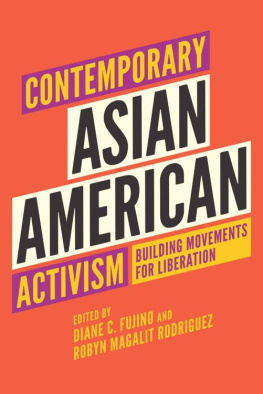
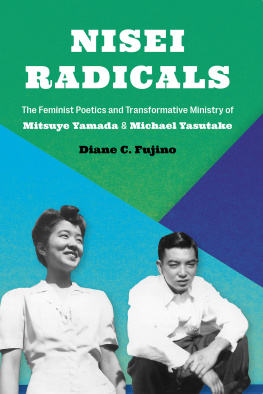
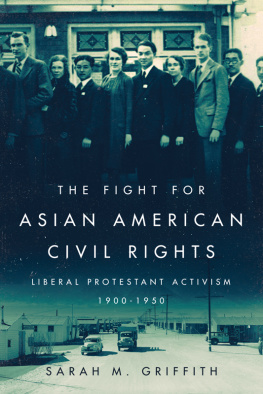
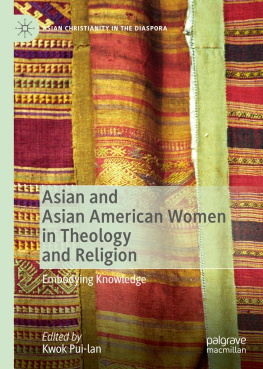
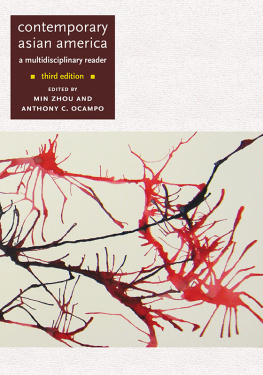
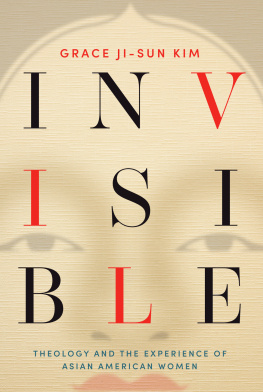
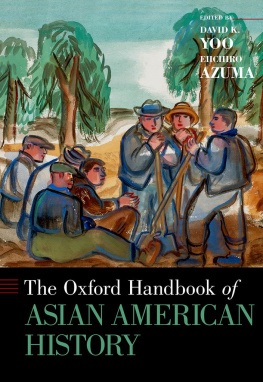

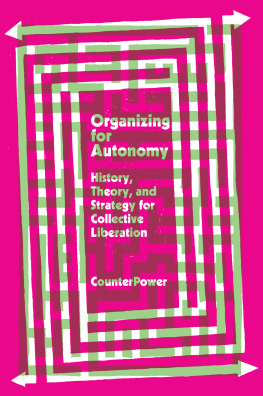
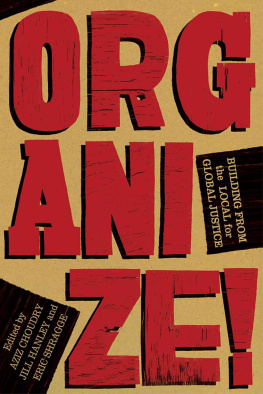
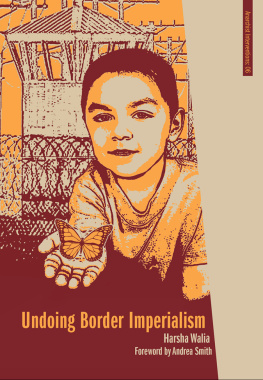
 This paper meets the requirements of ANSI/NISO Z39.48-1992 (Permanence of Paper).
This paper meets the requirements of ANSI/NISO Z39.48-1992 (Permanence of Paper).